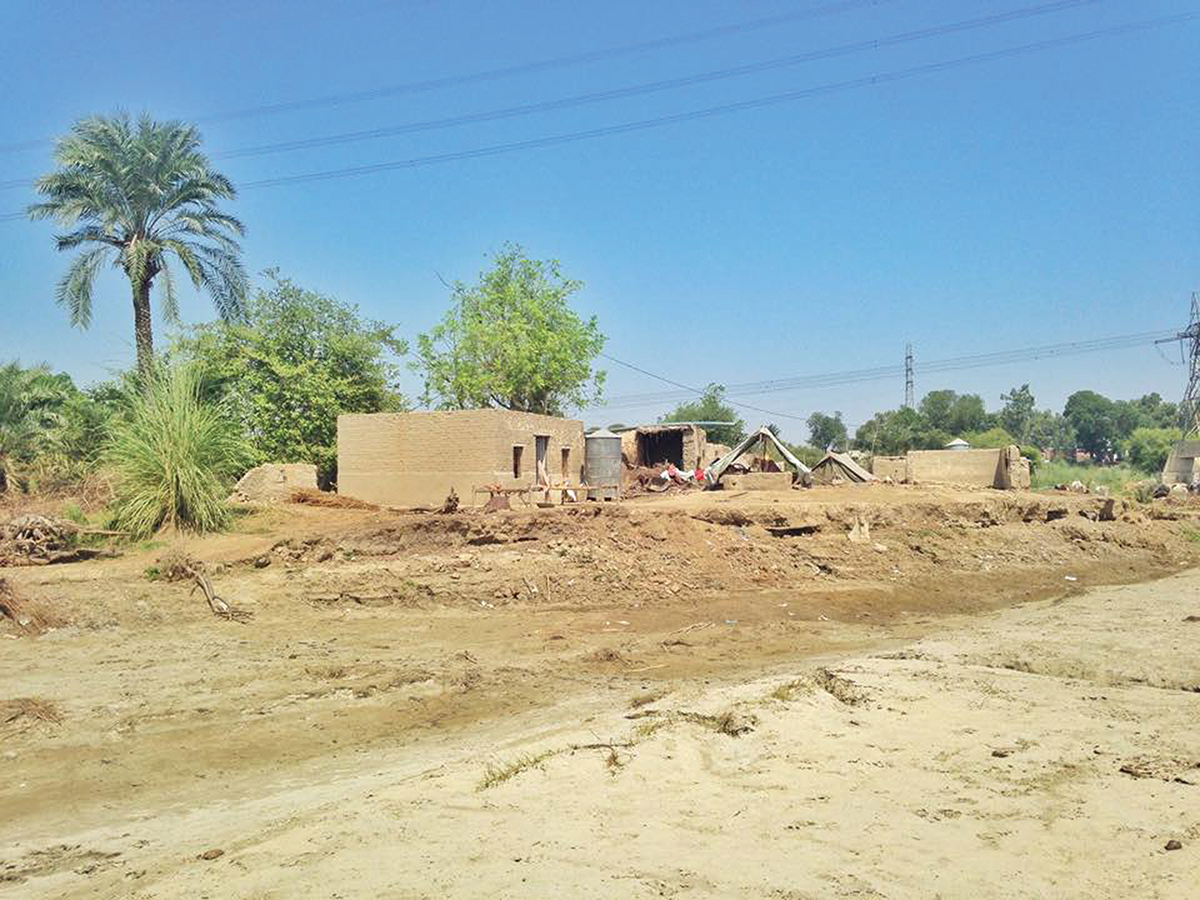
by Sarah Ahmed, PhD candidate, Department of Sociology
What does empowerment mean in the life of a twenty or thirty-something-year-old woman residing in rural Punjab? Prior to receiving a CSWS Graduate Student Research Award, my summer research in Pakistan’s South Punjab led me to find some fascinating explorations of how the World Health Organization’s (WHO) polio drive is creating new avenues in career opportunities for women within small rural villages. The polio campaigns are targeted more locally and driven primarily by women in the community to go door-to-door to ensure that each child eligible to receive the polio medicine has received it.
Last summer [2016], most of my work focused on making observations and interviewing women directly working in the polio campaigns, and how their work outside the home affected how they saw themselves and how others saw them in the community. Many of the women had never been employed before. Of particular interest to my research were speech patterns and nonverbal communication gestures in the way this was relayed—one of the key arguments I made from my initial visit was that while access to employment helped women create increased awareness of their own rights and financial autonomy, they still did so in very subtle and indirect ways since the women were still maneuvering in a largely patriarchal society within their villages.
Whereas my initial research fieldwork two summers ago helped familiarize me with the terrain of the people and organizations at work, my research this past summer allowed me to revisit the connections I had made and find out the ways women I had met the year before were reimagining themselves and the role that they play in keeping their communities polio-free. This was seen especially in discussions pertaining to the worker strike that took place in many cities across Pakistan during my stay in the country—many of the female community health workers who call themselves Lady Health Workers (LHWs) demanded to be paid by their respective provincial government.
This to me was particularly fascinating as it depicted a very different struggle the women were facing than what I had noted earlier: whereas in my previous visit I found tensions an LHW had to face between her role as an employee and mother/wife. However, the strike and protests I witnessed during this trip depicted a demand to recognize an LHW’s labor for, and value to, her own community and country. To be sure, the strikes that happened across the country were seen in cities primarily—far from the remote villages that I had visited for my initial research. However, it was evident in my interviews with the protesting LHWs that they were fairly vocal about their demands to their counterparts residing outside the cities.
Would the LHWs unionize? Certainly, it is a job that is critical in Pakistan, one of two countries in the world where polio is still rampant. It is also a job that carries much risk not only because the job entails a woman having to leave her home and kids and speak to men who are not her family, but also because of the work’s affiliation to WHO, which some Pakistanis find problematic in the growing anti-West rhetoric visible in the lower social classes. How do these protests affect how the women (directly involved in the protests) see themselves, as well as their village counterparts who may not yet have the resources to protest in their own communities? These are some of the questions I am trying to work through and prepare for before my next trip to Pakistan.
Let’s revisit the first question: what does empowerment mean for a woman in rural Punjab, situated miles away from a cosmopolitan city like Lahore or Islamabad where it is no longer taboo for women to leave their homes and to protest? How does affiliation by her work as an LHW impact how she sees herself and her rights, and how her immediate community sees her? Is her empowerment similar to what we see and expect from women in the West, or is it more nuanced to account for the patriarchy and oppression she faces in both direct and indirect ways?
From my visits to Pakistan, it seems that the women in my research are changing the way they see themselves based on the way they talk about the work they do and their contribution to their communities. In rural areas, however, women are still juggling their roles as mothers and wives to not overtly rebuke the power status. Their city counterparts have more opportunity to get together and demand their rights. I hope to be able to go back in the field again to find out if the transition continues in the same trajectory, and why, in future visits.
—Sarah Ahmed is a third year doctoral student in the Department of Sociology. Her research focuses on reconceptualizing what women’s empowerment and women’s rights means given the lived experiences of women in the development context in the developing Muslim countries, specifically Pakistan. She has an MS in sociology from UO, and an MA in international studies from the University of Washington, Seattle.

